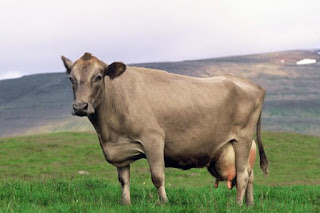NSENENE / GRASSHOPER CLAN
Totem: Ensenene
Akabbiro: Nabangogoma
Clan Leader / owakasolya: Mugalula
Estates: Kisozi
Ssaza: Ggomba
Omubala / Clan motto: (i) Byaja ne bigwa.
(ii) Ggwe mpagi, ggwe luwaga.
(iii) Nakimera muka Ssuuna bw’asa bwanegula.
ORIGIN OF ENSENENE CLAN
Nseenene clan God father was a herdsmen who lived around the slopes of Mugamba Hill in Busongola county in Tooro kingdom. Nseenene clan ancestry is Kiroboozi, the god father of the clan. Kiroboozi had many children, among them Buyonga, Kalibbala, and Nnandawula his daughter.
When Kiroboozi died, his children experienced inheritance horror. Buyonga, Kalibbala and Nnandawula dispersed from Busongola with their cattle to Bwera in Buddu county. From Bwera, they wandered to Ggomba county and settled in kakoni village, at Kakubansiri. While in kakoni, Buyonga and Kalibbala had a misunderstanding and decided to part ways.
Kalibbala headed North and settled at Nsiisi in Busujju county. He is thought to have arrived at Nsiisi before Kabaka Kintu established his royal court at Nnono. Kalibbala was one of the clan elders appointed by Kabaka Kintu at Nnono. Kalibbala was appointed as the leader of the Abataka.(leaders) upto date, Kalibbala heads bataka in royal court
.
Buyonga headed East into Kyadondo county and settled at Kisozi. At Kisozi, Buyonga got two children, a daughter named Wannyana. While on a tour of his territories, the King of Bunyoro Omukama Winyi, passed through Kisozi and was struck by the beauty of Wannyana. Omukama Winyi at once asked for Wannyana's hand in marriage. Winyi and Wannyana left for Kibulala in Bunyoro Kingdom. Wannyana bore a son, prince Kimera, who later became Kabaka (king) of Buganda, following the death of Prince Kalemeera.
According to Buganda oral history, Buyonga found a woman named Muwumuzza at Kisozi. Muwumuzza was one of Omukama Winyi's wives. She had been placed at Kisozi as a representative and overseer of that region of King Winyi's territory. Buyonga fell in love with Muwummuza and later she bore him a son. child was named Mugalula. thereafter his offspring were named Mugalula. To this day, the clan seat of Mugalula remains Kisozi, in Ggomba county.
males
Kalanzi, Ssendawula, Kajubi, Ssewannyana, Kalibbala, Masembe, Mwebe, Mpagi, Kanyeerezi, Nkata, Kasumba, Luyombya, Beekalaze, Nteyafa, Bwogi, Ssepuya, Ssempiira, Mponye, Nsozi, Ssendikaddiwa, Kyome, Busonga, Kironde, Sserebe, Ssengaaga, Sseggoma, Mujabi, Katumwa, Senteza, Bunnya, Ssempagala, Mutiibwa, Dyeko, Maganyi, Ssimbwa, Nsambu, Ddingiro, Mbyalwa, Lukaayi, Nkwanzi, Lugobe, Kibanda
females
Nakalanzi, Nandawula, Nakajubi, Wannyana, Nakimera, Namisango, Nansikombi, Nabyonga, Kabennggano, Nambassa, Ndwaddeewazibwa, Namyenya, Katiiti, Katassi, Nabagesera, Nnaamala, Nakulima, Kutamba, Ddambya, Kayogoma, Lukwanzi
Akabbiro: Nabangogoma
Clan Leader / owakasolya: Mugalula
Estates: Kisozi
Ssaza: Ggomba
Omubala / Clan motto: (i) Byaja ne bigwa.
(ii) Ggwe mpagi, ggwe luwaga.
(iii) Nakimera muka Ssuuna bw’asa bwanegula.
ORIGIN OF ENSENENE CLAN
Nseenene clan God father was a herdsmen who lived around the slopes of Mugamba Hill in Busongola county in Tooro kingdom. Nseenene clan ancestry is Kiroboozi, the god father of the clan. Kiroboozi had many children, among them Buyonga, Kalibbala, and Nnandawula his daughter.
When Kiroboozi died, his children experienced inheritance horror. Buyonga, Kalibbala and Nnandawula dispersed from Busongola with their cattle to Bwera in Buddu county. From Bwera, they wandered to Ggomba county and settled in kakoni village, at Kakubansiri. While in kakoni, Buyonga and Kalibbala had a misunderstanding and decided to part ways.
Kalibbala headed North and settled at Nsiisi in Busujju county. He is thought to have arrived at Nsiisi before Kabaka Kintu established his royal court at Nnono. Kalibbala was one of the clan elders appointed by Kabaka Kintu at Nnono. Kalibbala was appointed as the leader of the Abataka.(leaders) upto date, Kalibbala heads bataka in royal court
.
Buyonga headed East into Kyadondo county and settled at Kisozi. At Kisozi, Buyonga got two children, a daughter named Wannyana. While on a tour of his territories, the King of Bunyoro Omukama Winyi, passed through Kisozi and was struck by the beauty of Wannyana. Omukama Winyi at once asked for Wannyana's hand in marriage. Winyi and Wannyana left for Kibulala in Bunyoro Kingdom. Wannyana bore a son, prince Kimera, who later became Kabaka (king) of Buganda, following the death of Prince Kalemeera.
According to Buganda oral history, Buyonga found a woman named Muwumuzza at Kisozi. Muwumuzza was one of Omukama Winyi's wives. She had been placed at Kisozi as a representative and overseer of that region of King Winyi's territory. Buyonga fell in love with Muwummuza and later she bore him a son. child was named Mugalula. thereafter his offspring were named Mugalula. To this day, the clan seat of Mugalula remains Kisozi, in Ggomba county.
Ritual Duties of the Nseenene Clan
- Kajubi Batema holds the responsibility of cutting down trees at the royal palace of Kintu at Nnono. During the crowning ceremonies, Kajubi Batema wraps a string of beads around the left arm of the Kabaka while pronouncing the words: "Ggwe Kimera!" meaning: "You are Kimera!"
- Masembe of Maya is herdsman to the Kabaka's cow named Nnaamala. During the coronation of a Kabaka, Masembe presents a gourd of milk before the Kabaka while uttering the warning: "I am the herdsman of your cow Nnaamala. From this cow, your grandfather Kimera got his milk."
- After the Kabaka tastes the milk, Masembe removes the gourd of milk.
- Kalibbala was responsible for hunting andcapturing a live antelope to be used in the preparation ceremonies of a new king in the assumption of royal duties. The antelope was used in a mock hunting session to remind the new king of Kabaka Kimera's use of hunting powers in his ascent to the throne
males
Kalanzi, Ssendawula, Kajubi, Ssewannyana, Kalibbala, Masembe, Mwebe, Mpagi, Kanyeerezi, Nkata, Kasumba, Luyombya, Beekalaze, Nteyafa, Bwogi, Ssepuya, Ssempiira, Mponye, Nsozi, Ssendikaddiwa, Kyome, Busonga, Kironde, Sserebe, Ssengaaga, Sseggoma, Mujabi, Katumwa, Senteza, Bunnya, Ssempagala, Mutiibwa, Dyeko, Maganyi, Ssimbwa, Nsambu, Ddingiro, Mbyalwa, Lukaayi, Nkwanzi, Lugobe, Kibanda
females
Nakalanzi, Nandawula, Nakajubi, Wannyana, Nakimera, Namisango, Nansikombi, Nabyonga, Kabennggano, Nambassa, Ndwaddeewazibwa, Namyenya, Katiiti, Katassi, Nabagesera, Nnaamala, Nakulima, Kutamba, Ddambya, Kayogoma, Lukwanzi




Comments
Post a Comment